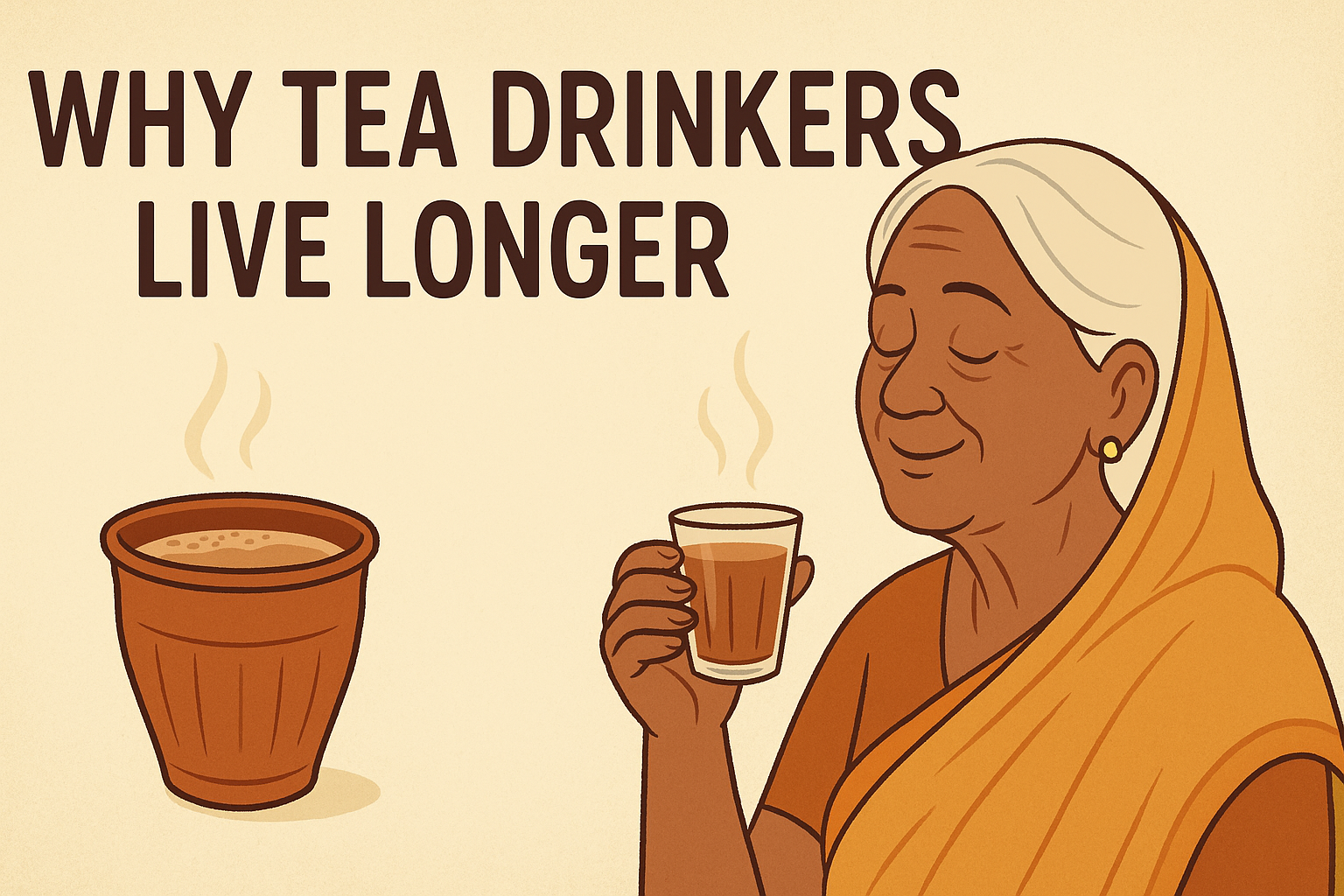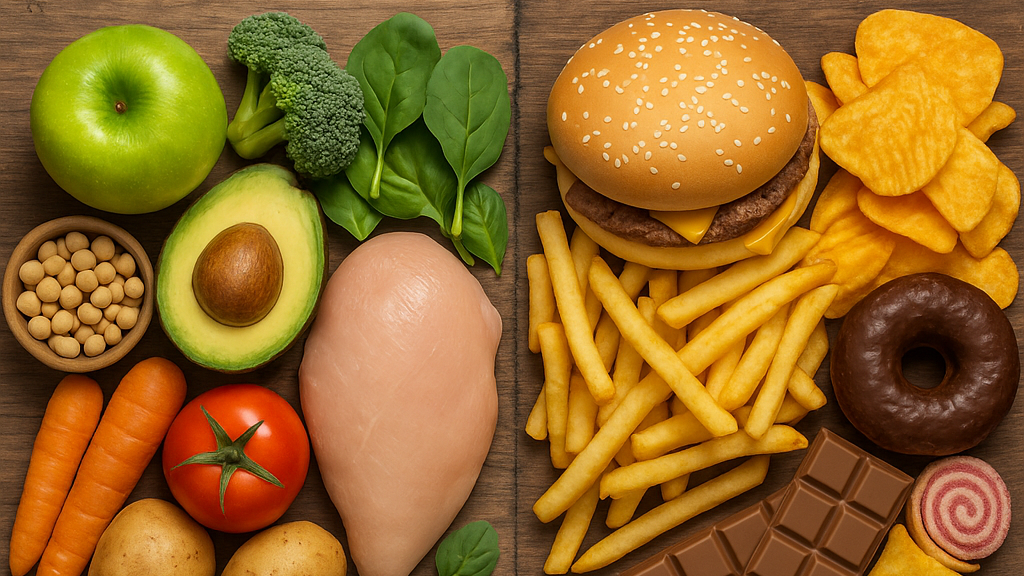Introduction: A Cup of Life?
In India, tea isn’t just a beverage — it’s an emotion. From early-morning chai at home to roadside stalls buzzing with conversation, tea is everywhere. But beyond the warmth and comfort, science says something fascinating: tea drinkers tend to live longer. Sounds like magic in a cup, right?
Well, not quite.
Not all tea is created equal. That sugary milk tea many of us enjoy today? It might feel good, but is it doing our health any favors? And what about the traditional Indian brews our grandparents swore by — the ones with tulsi, ginger, and no sugar?
Let’s unravel the science behind tea and longevity, and whether your daily chai is a health elixir… or just sweet nostalgia.
The Science Behind the Sip: Why Tea Can Help You Live Longer
Multiple studies across the globe — from Japan to Europe — have found that regular tea consumption is linked to lower mortality. Why?
Tea is packed with polyphenols and catechins — powerful antioxidants that:
- Fight cell damage
- Lower inflammation
- Improve heart health
- Boost brain function
- Reduce the risk of chronic diseases like diabetes and cancer
In short: tea helps your body age better.
Global Teas That Promote Longevity
Let’s take a quick look at how different cultures use tea as a health tonic:
| Country | Type of Tea | Health Focus |
|---|---|---|
| China | Aged Pu-erh, Green | Weight loss, cholesterol control |
| Japan | Matcha | High antioxidants, calm alertness |
| UK | Black Tea | Heart health, lower blood pressure |
| Morocco | Mint Green Tea | Digestion, stress relief |
| India (Past) | Herbal Kadha Teas | Cough, immunity, digestion |
| digestion |
🇮🇳 Indian Tea: Then vs Now
Back Then: Tea as Medicine
In ancient India, tea wasn’t just a drink — it was a remedy. Grandmas brewed different teas for:
- Coughs & colds – with ginger, tulsi, black pepper
- Digestion – with fennel, ajwain, cinnamon
- Headaches & fatigue – with mint, lemongrass, clove
These herbal teas, often caffeine-free, were functional, customized, and made from fresh, whole ingredients.
Now: Tea Powder, Milk, and Sugar
Today’s “regular chai” looks very different:
- Low-grade tea powder (often dust or fannings)
- Boiled in milk and water for too long
- Loaded with refined sugar
The result? A tasty treat, yes — but often stripped of the true benefits that real tea can offer.
What’s Wrong With Modern Indian Chai?
- Antioxidants Get Destroyed: Over-boiling tea breaks down its health-promoting compounds.
- Milk Cancels Out Benefits: Proteins in milk bind with antioxidants, reducing their absorption.
- Too Much Sugar: Excess sugar increases risk of diabetes, obesity, and heart disease — all aging accelerators.
- Poor-Quality Tea Powders: Lack the nutrients of whole-leaf teas or herbal infusions.
Bottom line: The average Indian chai, if made poorly and consumed often, might do more harm than good.
So, Which Tea Helps You Live Longer?
Tea that’s closest to its natural form wins. Here’s your longevity tea shortlist:
- Green Tea – Lightly processed, full of catechins
- Oolong or White Tea – Balanced, great for heart and skin health
- Pu-erh (Aged Tea) – Unique fermentation for gut and weight control
- Traditional Indian Herbal Teas – Tulsi, ginger, fennel, cinnamon combos
- Loose-Leaf Black Tea (with less or no milk) – Still beneficial, if brewed light
How to Make Your Tea Healthier (Without Losing the Taste)
You don’t have to give up chai — just tweak the recipe:
- ✅ Use loose-leaf tea instead of powder
- ✅ Boil water first, then add tea for just 2–3 mins
- ✅ Add spices like ginger, tulsi, or cinnamon for added health
- ✅ Cut down sugar or switch to jaggery/honey
- ✅ Add less milk, or try plant-based milk like almond or oat
Conclusion: Your Chai, Your Choice
Yes, tea drinkers live longer — but only when the tea is done right. The kind of chai we gulp down today, overloaded with sugar and milk, isn’t the miracle drink we think it is. It’s time to bring back the wisdom of traditional Indian tea, infused with healing herbs and brewed with intention.
So tomorrow morning, when you sip your chai — ask yourself:
Am I just enjoying the taste… or am I nourishing my future?
LATEST NEWS









